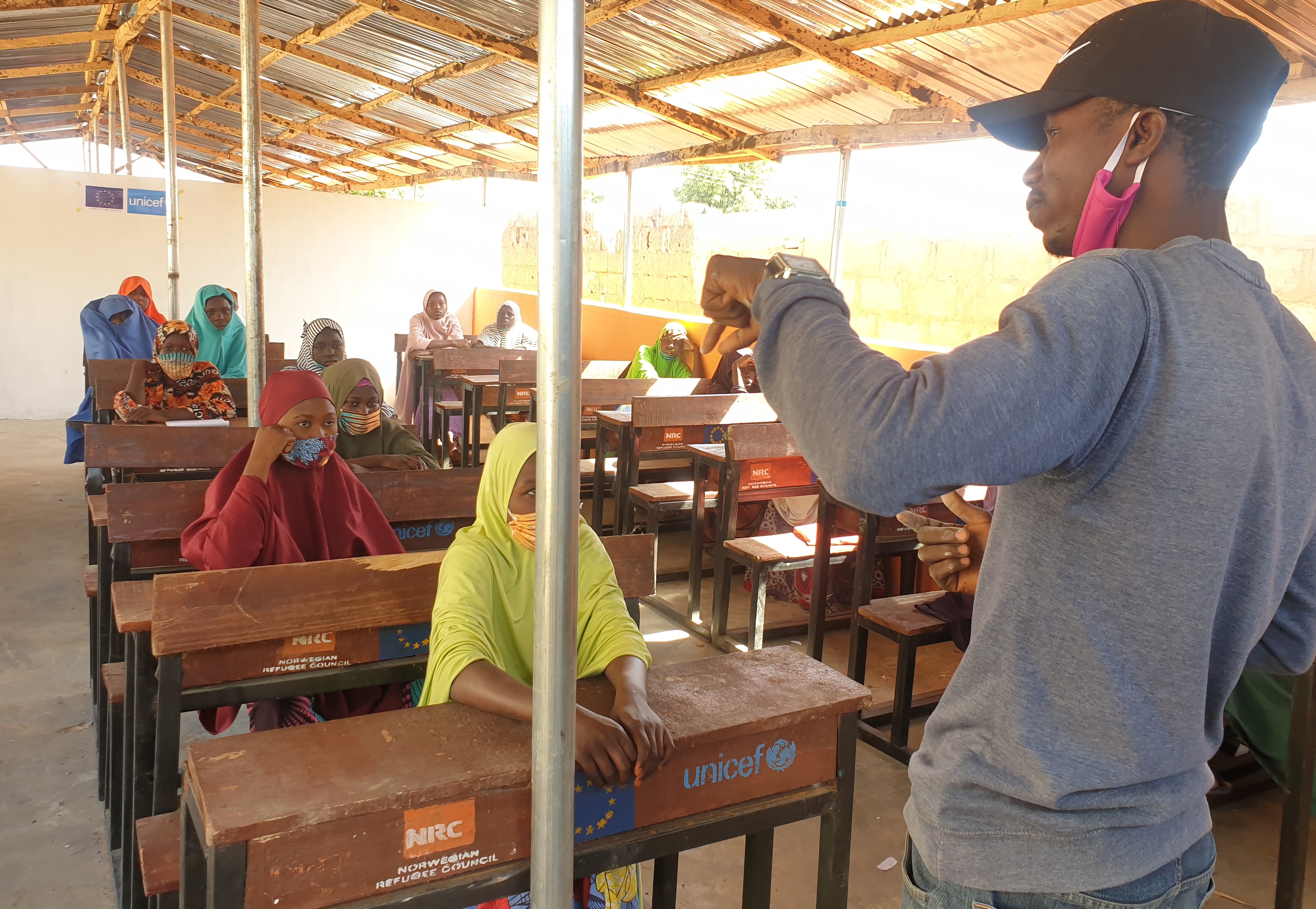A second chance in education
Discussion details
Although primary education is free and compulsory in Nigeria, it is estimated that nearly 13 million children are out of school. Around 60% of them are girls.
North Eastern Nigeria, and particularly Borno State in the North East is in a deeper educational crisis due to poverty, weak infrastructure and the Boko Haram insurgency. Boko Haram — which translates literally to “Western education is forbidden” — has killed tens of thousands of people and displaced millions. With the aim of destroying formal education, Boko Haram has attacked schools, killed teachers and kidnapped hundreds of students.
Even before the conflict, Borno state had one of the lowest school attendance and retention rates in the country, however the conflict has worsened the situation. It is estimated that over 1.4 million children are out of school in Borno state. 52% of the children have never attended school. Only 27.6 % of children are literate and only 28.6 % are numerate.[1]
Girls make up 70% of the total number of out of school children in Borno state.[2] Due to the fear of having children kidnapped or killed, many parents have withdrawn their daughters from school. Shorter stay in schools means early marriage and illiteracy for girls.
|
Keeping girls in school is one of the best ways to end child marriage, early childbearing, increase their personal earning potentials and reducing poverty in their communities. One extra year of schooling can increase a girl’s future earnings by more than 10%[3] and one extra year of secondary education reduces the likelihood of marrying before the age of 18 by 5% or more[4] . |
Through the EU-funded Support to Response, Recovery and Resilience in Borno project, an Accelerated Basic Education Programme (ABEP) has been launched to support the children, especially girls, whose educations were interrupted. The newly developed Accelerated Basic Education Curriculum (ABEC) offers a condensed version of the 9-Year Basic Curriculum which will be implemented in a 3-year cycle.

Muhammed Garba, a teacher at a European Union-supported informal learning centre in Kusheri, Maiduguri Borno State speaks to adolescents during a class
The target group of ABEP is the children between ages 10 and 18 whose education was interrupted and now are overage to continue schooling from where they stopped or the ones who have never been to school and are overage to start formal education from the foundation class.Through the EU-funded Response to Early Recovery in Borno project, an Accelerated Basic Education Programme (ABEP) has been launched in 2019 to support about 20,000 children and youth, especially girls, whose educations were interrupted. The newly developed Accelerated Basic Education Curriculum (ABEC) offers a condensed version of the 9-Year Basic Curriculum which will be implemented in a 3-year cycle.
ABEP offers a free and flexible education which helps including children who are forced to work, are over-age, are young mothers, or who face other forms of exclusion from entering or remaining in the formal education system. The programme also provides pathways to students to join the formal education at the appropriate level when they are ready.
After its pilot implementation in Borno State, the Government of Nigeria plans to extend ABEP to other States affected by conflicts and displacement.
|
Testimony of Amina Ibrahim from Gwoza town in Borno State. “My study centre is Lagwa AEP centre. I am 12 years old and have never being to school. I enrolled in the centre last 3 months and I have learnt a lot – basically pronunciation of two and three letter words. For example, I can pronounce and spell words like cat, car, dog, do and go. The project provided me with some basic learning materials to support my learning. I will advise my friends who are out of school to request for permission from their parents and join me in the ABEP centre. I am also looking forward to go to a formal school in my community.“ |
[1] https://www.unicef.org/media/63061/file/EdStrategy-2019-2030-CountrySolutions-Nigeria.pdf
[2] https://acecharityafrica.org/policy-brief-girl-child-education-in-borno-state/
[3] World Bank, Comparable Estimates of Returns to Schooling Around the World (2014)
[4] Economic impacts of child marriage: Global synthesis report (2017)

Log in with your EU Login account to post or comment on the platform.